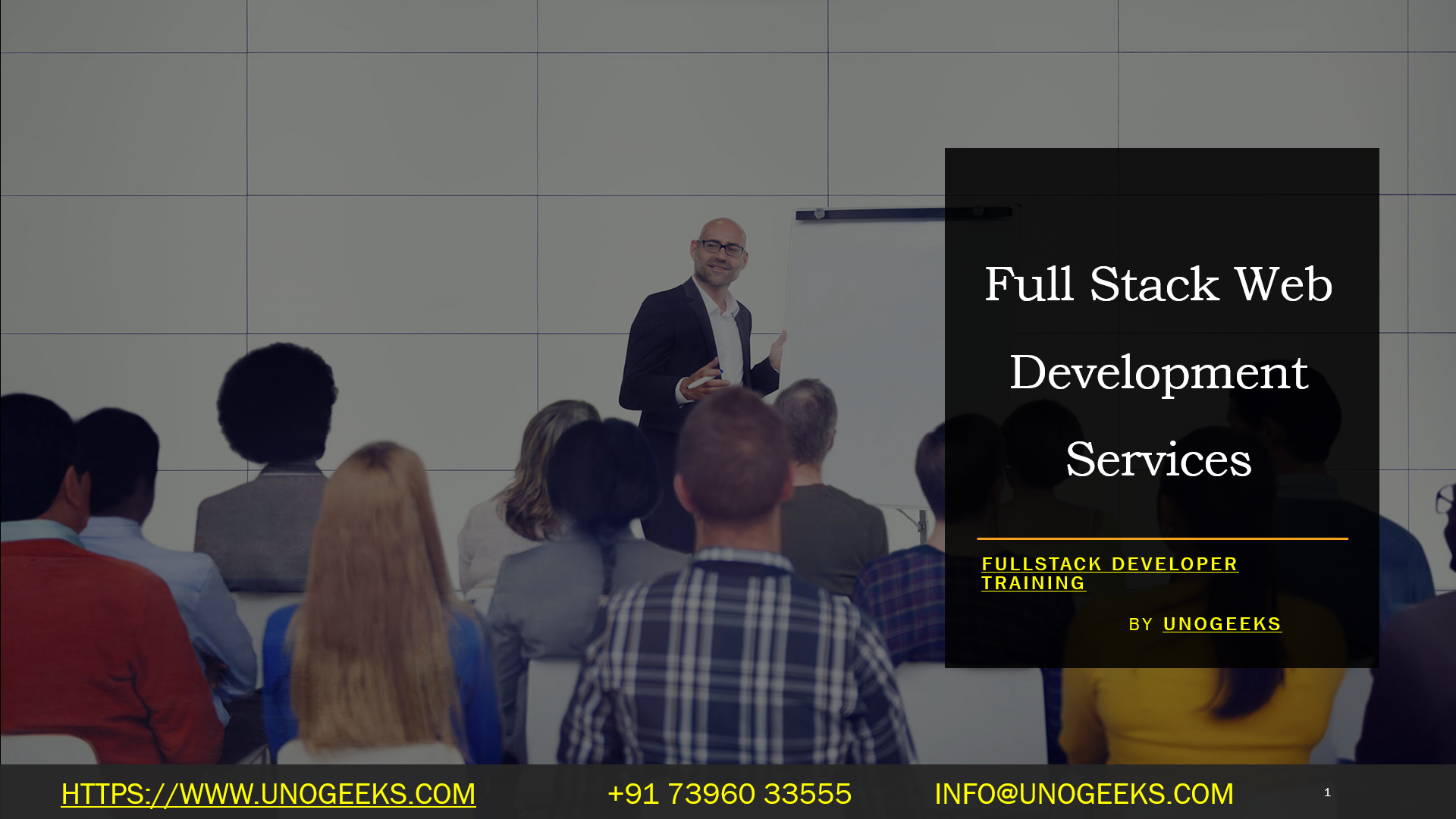Full Stack Web Development Services
Full Stack Web Development Services
Full Stack Web Development Services refer to the comprehensive set of tasks involved in the development of web applications and websites, covering both front-end (client-side) and back-end (server-side) development. These services are offered by individual developers or development agencies that possess a broad skill set encompassing the entire technology stack used in web development.
Key Components of Full Stack Web Development Services
Front-End Development
- UI/UX Design: Designing user interfaces and user experiences that are intuitive, responsive, and visually appealing.
- HTML/CSS/JavaScript: Implementing the core technologies of web development for structuring, styling, and adding interactivity to web pages.
- Frameworks and Libraries: Utilizing front-end frameworks like React.js, Angular, or Vue.js to build dynamic and sophisticated web applications.
- Responsive Design: Ensuring the web application is accessible and functional on various devices and screen sizes.
Back-End Development
- Server-Side Programming: Expertise in server-side languages like JavaScript (Node.js), Python, Ruby, PHP, Java, or C#.
- Database Management: Handling data storage and retrieval using SQL databases (e.g., MySQL, PostgreSQL) or NoSQL databases (e.g., MongoDB).
- API Development and Integration: Creating and integrating APIs for internal use or for use by third-party services.
Full Stack Integration
- MVC and MVVM Architectures: Utilizing architectural patterns like Model-View-Controller (MVC) or Model-View-ViewModel (MVVM) for efficient app development.
- Cross-Platform Development: Building applications compatible with multiple platforms (web, mobile, desktop) using technologies like Progressive Web Apps (PWAs) or frameworks like React Native.
DevOps and Deployment
- Cloud Computing Services: Leveraging cloud platforms like AWS, Azure, or Google Cloud for hosting, storage, and other cloud-based services.
- Continuous Integration/Continuous Deployment (CI/CD): Implementing CI/CD pipelines for automated testing and deployment using tools like Jenkins, CircleCI, or GitHub Actions.
- Containerization and Virtualization: Using Docker, Kubernetes, or similar technologies for efficient deployment and scaling.
Full Stack Developer Training Demo Day 1 Video:
Conclusion:
Unogeeks is the No.1 IT Training Institute for Full Stack Developer Training. Anyone Disagree? Please drop in a comment
You can check out our other latest blogs on Full Stack Developer Training here – Full Stack Developer Blogs
Please check out our Best In Class Full Stack Developer Training Details here – Full Stack Developer Training

———————————-
For Training inquiries:
Call/Whatsapp: +91 73960 33555
Mail us at: info@unogeeks.com
Our Website ➜ https://unogeeks.com
Follow us:
Instagram: https://www.instagram.com/unogeeks
Facebook:https://www.facebook.com/UnogeeksSoftwareTrainingInstitute
Twitter: https://twitter.com/unogeeks
